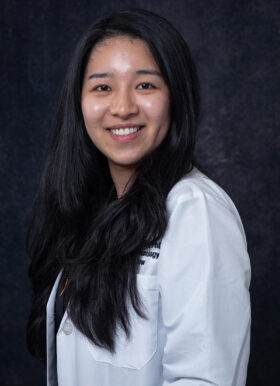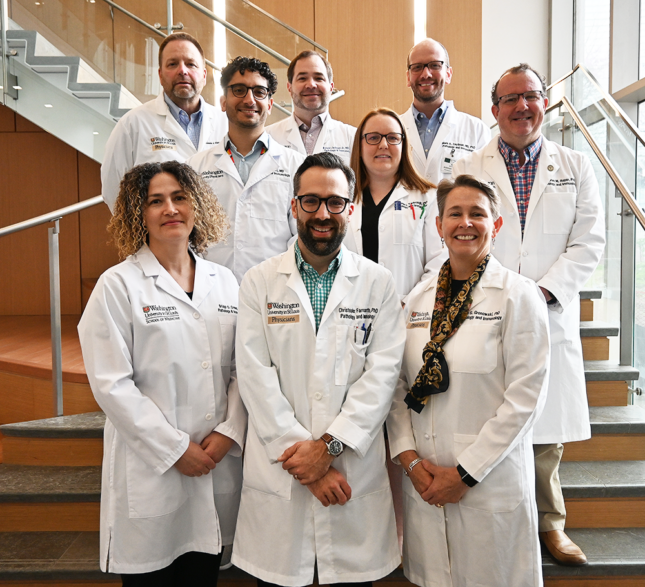
The Clinical Chemistry fellowship is a two-year, Commission on Accreditation in Clinical Chemistry (ComACC) accredited program for individuals with a doctoral degree in biological/chemical sciences or an MD. The clinical chemistry fellowship program prepares individuals for a career in academic laboratory medicine, clinical practice, or industry. Through this rigorous training program, participants receive relevant clinical experience to prepare for board accreditation through the American Board of Clinical Chemistry (ABCC). The clinical chemistry fellowship at Washington University emphasizes basic, translational, and clinical research in parallel with excellent clinical service with the primary objective of developing thought leaders in clinical laboratory medicine.
Laboratory medicine and clinical chemistry can be defined as the application of biochemistry to the diagnosis of human disease. It is a major interface between the basic and clinical sciences as new discoveries are applied to the diagnosis and monitoring of disease.
Career paths for board certified clinical chemists include director of a clinical laboratory in an academic or community hospital, director of a reference laboratory, working in the in vitro diagnostic industry, or conducting research at a university. Many trainees that complete the Washington University clinical chemistry fellowship choose careers in academic laboratory medicine that have four general areas of responsibility: clinical service, research, education and administration.
The clinical chemistry fellowship at Washington University is the longest running program in the US, boasting more than 100 graduates since its inception in 1972. For a list of recent graduates and current positions, please click here.
The first year begins with a 12-week clinical rotation covering the fundamentals of clinical chemistry such as quality assurance, endocrinology, toxicology, lipids, pediatric chemistry, statistics, pathophysiology, analytical methods and instrumentation. This is followed by a 12-week general introduction to laboratory medicine including rotations in coagulation, molecular diagnostics, and microbiology. Trainees also attend at 6-month course in clinical informatics. All rotations are completed in tandem with clinical pathology residents. Fellows also take part in an on-call system that supports Barnes Jewish Hospital and St. Louis Children’s Hospital while simultaneously participating in clinical laboratory meetings, quality assurance and test validation/verification.
The second year extends both the clinical and research experience with specialized clinical training and increased clinical responsibilities. There are two weekly laboratory medicine conferences that fellows participate in and “resident reports” that cover the on-call questions and cases from the previous week. Senior fellows have considerable exposure to laboratory management opportunities, attending multiple quality assurance and laboratory management meetings with faculty members and laboratory staff. The program offers a high degree of clinical interaction, diversified research opportunities and development of the concepts and skills required to manage a modern clinical laboratory.
A hallmark of the clinical chemistry fellowship at Washington University is participation in independent research, investigation, and scientific inquiry. All trainees participate in basic, translational, or clinical research in the laboratory of a selected faculty member that continues for the duration of the fellowship. Fellows have access to a 2000 square foot laboratory dedicated to clinical/translational research in chemistry, hematology, molecular diagnostics, coagulation, toxicology, and microbiology. For more information about faculty research interests and the laboratory please click here. Fellows may also participate in basic research with faculty members across the university.
Fellows are exposed to and trained by faculty that serve as laboratory directors at Barnes Jewish Hospital and St. Louis Children’s Hospital.
Barnes-Jewish Hospital at Washington University Medical Center, a 1,266 bed tertiary care facility in St. Louis, MO, provides acute care and subspecialty treatment for adult patients. The Barnes-Jewish hospital is among the top ranked hospitals in the US by the US News & World Report. The clinical laboratory within Barnes-Jewish Hospital is among the largest and most automated clinical hospital laboratories in the United States. The laboratory performs over 10 million tests per year, ranging from routine clinical testing to specialty testing. Barnes-Jewish Hospital is part of the BJC network of 13 hospitals, with the Barnes-Jewish Hospital laboratory providing reference testing for the hospital system.
St. Louis Children’s Hospital, a 402 bed pediatric hospital, is one of the premier children’s hospitals in the United States. St. Louis Children’s Hospital has a dedicated laboratory providing traditional chemistry testing and specialized testing services that meet the needs of pediatric patients including biochemical genetics, toxicology, and chloride sweat testing.
While on-call, fellows provide director level support for both hospitals. All fellows have desk space in the laboratory and genomic medicine resident’s office with a personal computer, and necessary software for clinical and research use. Trainees may also have desk space in the research laboratory in which they work.
Candidates must have a PhD with 28 semester hours of undergraduate and/or graduate courses in analytic, organic, physical or general chemistry or biochemistry or be board-certified or eligible in clinical pathology.
Deadline for applications is September 1, 2024, for fellows applying for a start date of July/August 2025. Please apply at fellowships.path.wustl.edu.
Formal interviews beginning September 1, 2024 (short informal discussions e.g. via phone or at ADLM meeting may be conducted).
Offers will be extended on or after October 1, 2024.
Candidates will be given a window of at least 2 weeks to consider the offer.
Faculty
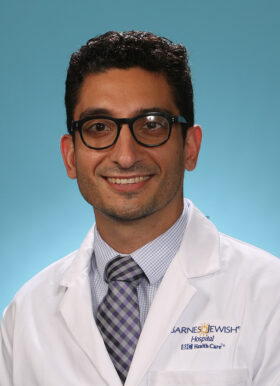
Vahid Azimi, MD
Instructor, Pathology & Immunology
Assistant Medical Director of Laboratory Information Systems
- Phone: 314-273-8220
- Email: a.vahid@wustl.edu
Division: Laboratory & Genomic Medicine
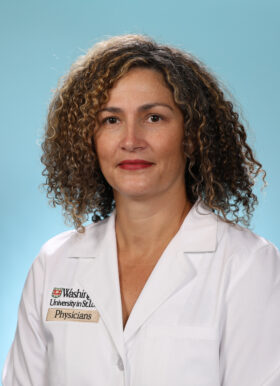
Bridgit Crews, PhD
Associate Professor, Pathology & Immunology
- Phone: 314-273-6201
- Email: bridgit@wustl.edu
Division: Laboratory & Genomic Medicine
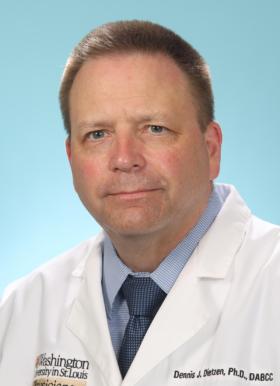
Dennis J. Dietzen, PhD
Professor, Pathology & Immunology
Section Head, Pediatrics Lab
- Phone: 314-286-2857
- Fax:
- Email: dietzen_d@wustl.edu
Division: Laboratory & Genomic Medicine
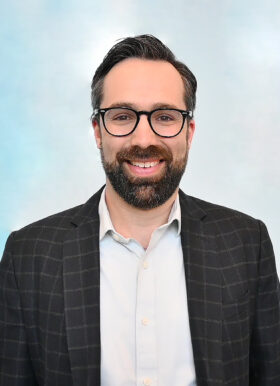
Christopher W. Farnsworth, PhD
Associate Professor, Pathology & Immunology
Section Head, Clinical Chemistry
Co-Director, Clinical Chemistry Fellowship
- Phone: 314-362-1503
- Email: cwfarnsworth@wustl.edu
Division: Laboratory & Genomic Medicine
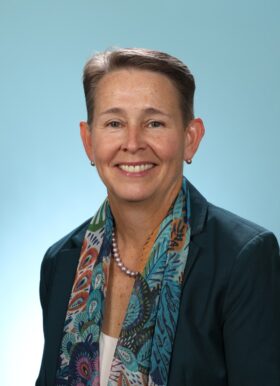
Ann M. Gronowski, PhD
Oree M. Carroll and Lillian B. Ladenson Professor in Clinical Chemistry, Pathology & Immunology and Obstetrics & Gynecology
Division Co-Chief, Laboratory and Genomic Medicine
CLIA Medical Director, BJH Pathology Services & Memorial Hospitals
Co-Director, Clinical Chemistry Fellowship
- Email: gronowski@wustl.edu
Division: Laboratory & Genomic Medicine
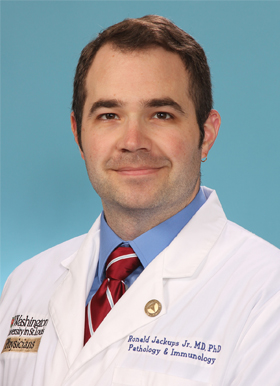
Ronald Jackups Jr., MD, PhD
Professor, Pathology & Immunology
Section Head, Clinical Informatics
Director, Clinical Informatics Fellowship
- Email: rjackups@wustl.edu
Division: Laboratory & Genomic Medicine
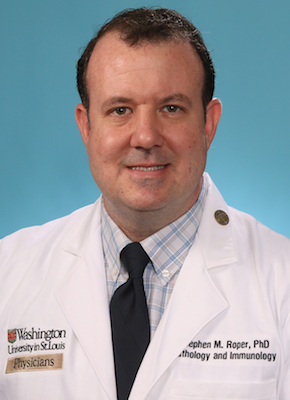
Stephen Roper, PhD
Associate Professor Pathology & Immunology
- Phone: 314-454-4087
- Email: smroper@wustl.edu
Division: Laboratory & Genomic Medicine
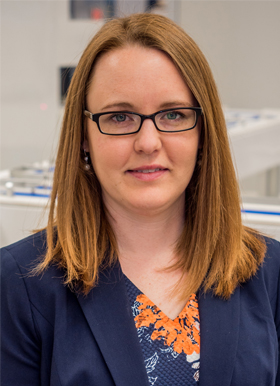
Melanie L. Yarbrough, PhD
Associate Professor, Pathology & Immunology
Medical Director, Microbiology, Barnes Jewish Hospital
Section Head, Microbiology
Director, Microbiology Fellowship
- Phone: 314-362-2669
- Email: myarbro@wustl.edu
Division: Laboratory & Genomic Medicine
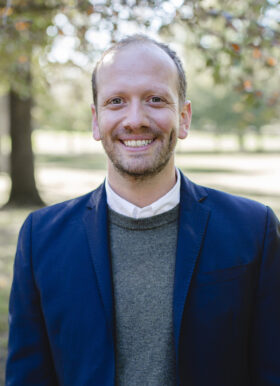
Mark A. Zaydman, MD, PhD
Assistant Professor, Pathology & Immunology
- Phone: 314-747-0493
- Email: zaydmanm@wustl.edu
Division: Laboratory & Genomic Medicine
Trainees
Contact information
Naomi Burr
Fellowship Program Coordinator
burr@wustl.edu
